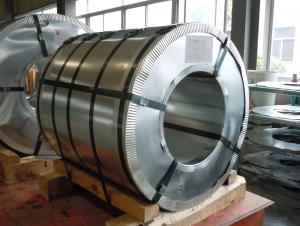Rebar, also known as reinforcing bar, is an essential component in the construction industry. It’s used to strengthen concrete structures, ensuring they can withstand the test of time and the elements. But with so many options available, how do you know which rebar is right for your project? Let’s dive into some key considerations before you make your purchase.
What is Rebar?
Rebar is a steel bar with ridges or ribs that bond with fresh concrete to provide structural integrity. It comes in various shapes and sizes, but the most common type is deformed, which has a pattern of grooves to improve grip.
Why Use Rebar?
Using rebar in construction projects is crucial for several reasons. It enhances the tensile strength of concrete, which is essential for supporting heavy loads. It also helps prevent cracking and ensures the longevity of the structure.
Types of Rebar
Before you buy, it’s important to understand the different types of rebar available. There’s deformed rebar, plain rebar, epoxy-coated rebar, and even stainless steel rebar. Each type has its own benefits and is suited for specific applications.
– Deformed Rebar: This is the most common type, with grooves that help it bond with the concrete. It’s ideal for general construction.
– Plain Rebar: Without grooves, it’s less effective at bonding but is still used in certain situations.
– Epoxy-Coated Rebar: This type is coated with epoxy to resist corrosion, making it perfect for marine environments or areas with high moisture.
– Stainless Steel Rebar: Known for its corrosion resistance, it’s used in projects where aesthetics and durability are paramount.
Grades of Rebar
Rebar comes in various grades, each with different yield strengths. The grade you choose will depend on the specific requirements of your project. Common grades include Grade 40, Grade 60, and Grade 75. The higher the grade, the stronger the rebar.
Size and Dimensions
The size of the rebar is crucial. It’s measured in diameter, with common sizes ranging from 6mm to 40mm. The diameter you choose will depend on the load-bearing capacity needed for your project.
Length Considerations
Rebar is typically sold in standard lengths, but it can be cut to fit your project’s needs. Consider the length you’ll need and whether you’ll be able to cut it yourself or require professional assistance.
Quality and Certifications
When purchasing rebar, quality is paramount. Look for rebar that meets industry standards and has the necessary certifications. This ensures that you’re getting a product that’s been tested and proven to perform.
Price and Budget
Rebar can vary in price based on type, grade, and quantity. Set a budget and consider the long-term value of investing in high-quality rebar. Remember, the cheapest option isn’t always the best in the long run.
Supplier and Delivery
Choose a reputable supplier who can provide the rebar you need when you need it. Consider delivery times and costs, as these can impact your project timeline.
Environmental Impact
Consider the environmental impact of the rebar you’re purchasing. Some manufacturers produce rebar with a lower carbon footprint, which can be a selling point for projects with sustainability goals.
Future Maintenance
Think about the maintenance requirements of the rebar you choose. Epoxy-coated rebar, for example, requires less maintenance due to its corrosion resistance.
Customization Options
Some suppliers offer customization options, such as cutting rebar to specific lengths or providing specific coatings. This can be beneficial for projects with unique requirements.
In Conclusion
Purchasing rebar is a significant decision that can impact the success of your construction project. By considering the type, grade, size, length, quality, price, supplier, environmental impact, maintenance, and customization options, you can make an informed choice that ensures the structural integrity and longevity of your project. Remember, the right rebar can make all the difference.

